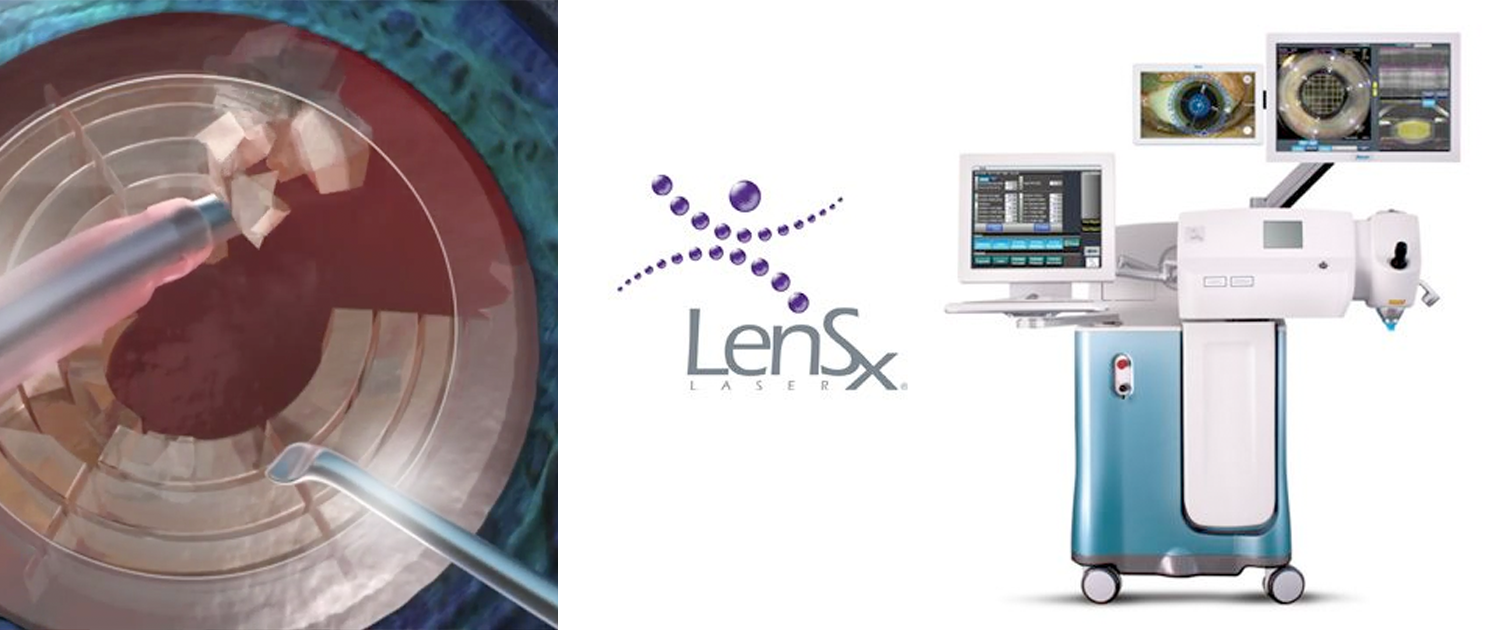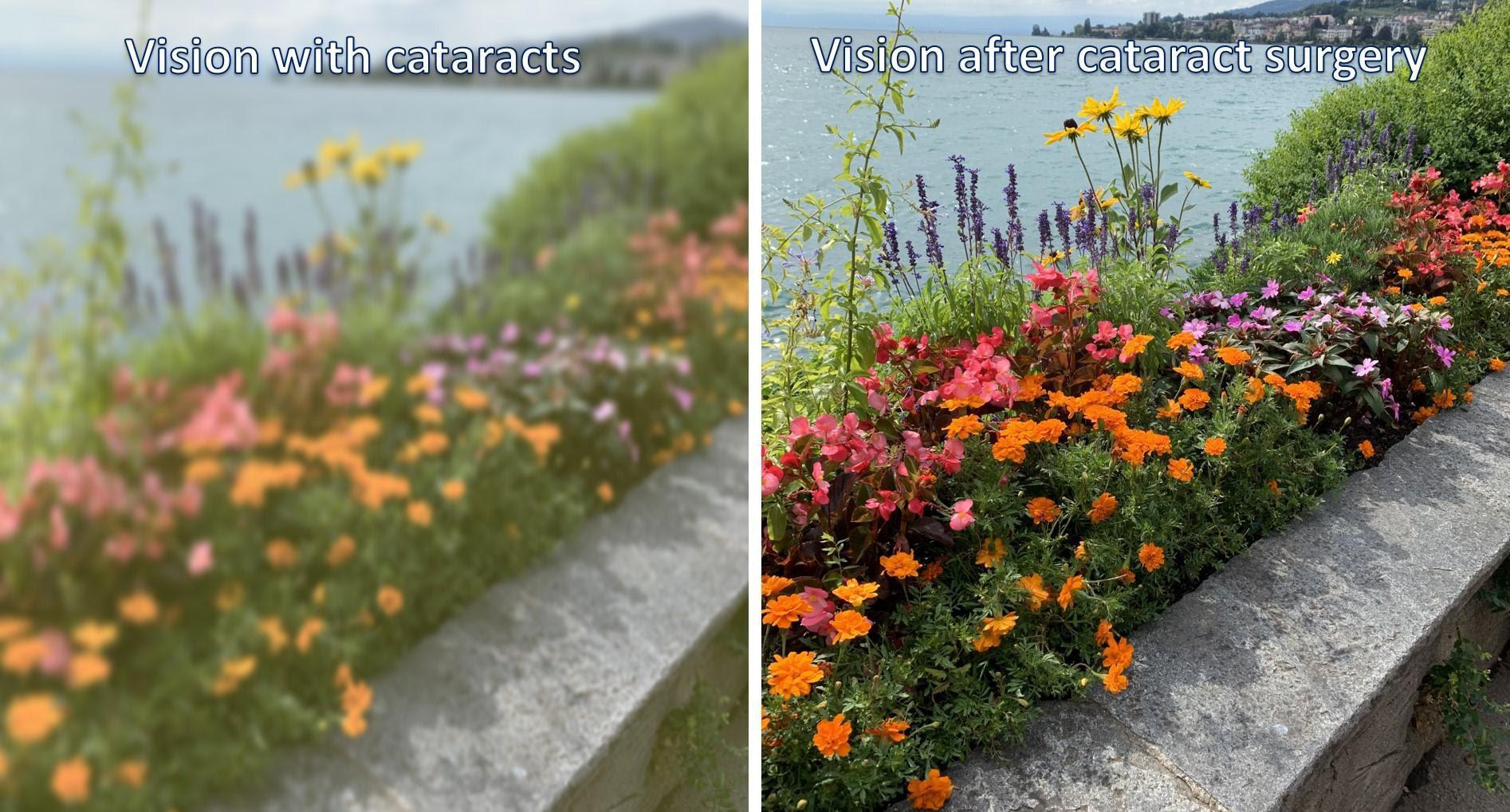Cataract
What is a cataract?
Cataracts are the most common cause of vision loss in adults over 40. At VIP Laser Eye Center in Palm Beach Gardens, Stuart, and Port St. Lucie, Florida, refractive surgeon Clifford Salinger, MD and our team offer cataract surgery with several options for lens upgrades. For more information about the surgery, call VIP Laser Eye Center today.
A cataract develops when the proteins in your eye’s lens, the clear tissue behind the iris that helps focus light, clump together and make the lens foggy. It’s a common cause of increased glare and vision decline. Over time, things start to appear slightly cloudy or blurry. A cataract can also cause distracting glares, halos, trouble with night vision and other visual disturbances.
There are several different types of cataracts. If you develop one, the team at VIP Laser Eye Center can inform you which type you have and your options for treating it. You might have:
Nuclear Cataracts
Nuclear cataracts are associated with natural aging. They develop in the center of your lens.
Subcapsular Cataracts
Subcapsular cataracts commonly develop in people who take steroid medications in high doses and people who have diabetes. They form on the back surface of your lens.
Cortical Cataracts
Cortical cataracts look like wedges and start at the periphery of your lens and grow toward the middle, causing decreased vision as they progress.
Do I have to have cataract surgery?
Because there are no medications or eye drops to treat cataracts, the only option for cataract treatment is surgery to remove the cataracts. Cataract surgery is an elective procedure, so the team at VIP Laser Eye Center will work with you to decide the right time for your cataract surgery.
During the surgery, your surgeon will remove your cataract and replace it with an artificial lens implant. Although surgery might sound like a big step, cataract surgery is the most common surgical procedure in the United States and has a very high rate of success with low risk for complications.
An anesthesiologist will give you light anesthesia to keep you comfortable throughout the process. Your surgeon will make a small, microscopic incision in your cornea, break up and remove your cataract with an ultrasound probe and then implant an artificial lens in its place. If you have cataracts in both of your eyes, the team performs just one surgery at a time with a few weeks between your surgeries allowing your first surgical eye to heal.
Prior to your cataract surgery, you’ll meet with the team at VIP Laser Eye Center for a consultation. They will help you review your options, including laser-assisted cataract surgery with the LenSx® laser.
Can I have bladeless, laser cataract surgery?
Yes. Your surgeon can use a laser, called a femtosecond laser, instead of a blade to make the openings to allow access to the cataract. Not only can the laser make the incisions for cataract surgery, but it can also break up your cataract and correct mild astigmatism, all before you have even entered the operating room! This service is not covered by insurance. Ask your surgeon if laser-assisted cataract surgery is right for you.
What are my options for lens implants during cataract surgery?
When you have cataract surgery, you do have a few options for the lens implant. The standard option is a monofocal lens implant with a fixed focus. If you choose this option, you will likely need glasses after surgery at least some of the time, if not all the time. Some specialty lenses can improve your quality of vision without glasses. These premium lens alternatives are not covered by insurance and patients are responsible for this out-of-pocket premium. If you’re interested in an upgrade, your options are:
Toric
Toric lenses are designed to correct astigmatism and improve the quality of your vision at a certain distance. You will likely only need reading glasses after your surgery.
Extended Depth of Focus (EDOF) and Multifocal
EDOF and Multifocal lenses can correct reading vision, intermediate and distance vision. Depending on the specific lens, you may still need a light pair of glasses in poor light or for very tiny print.
Trifocal
The trifocal lens is the newest lens on the market. This option provides a more continuous range of vision, allowing the most freedom from glasses for distance, intermediate and near. A light pair of glasses may still be necessary for certain visual activities.
To discuss cataract surgery with one of the professionals at VIP Laser Eye Center, book your consultation by phone today.



